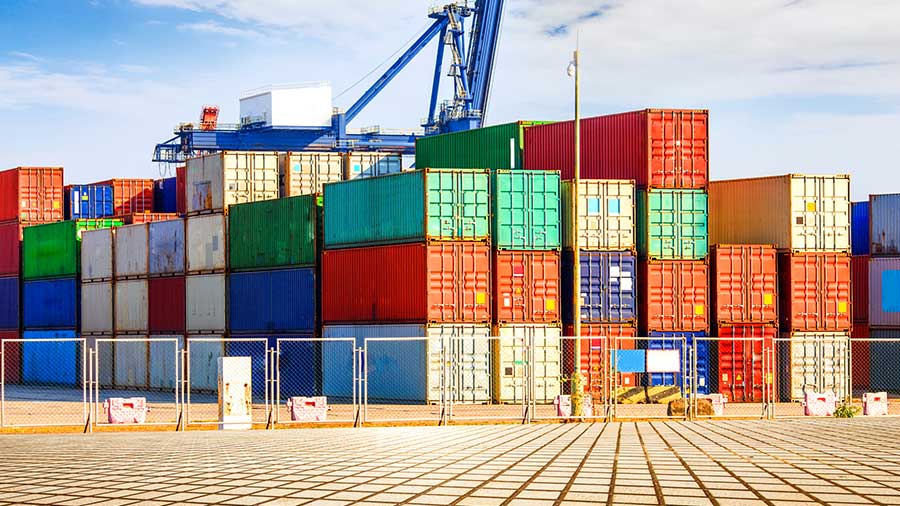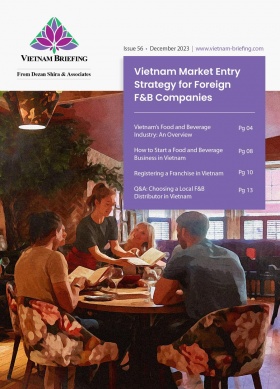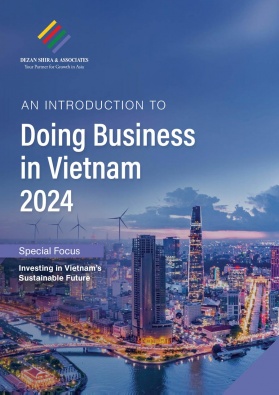Vietnam’s Investment Surge in 2024: Key Trends
Vietnam’s surge in foreign investment in 2024 is driven by its favorable business climate, supportive government policies, and a dynamic labor market.
Surge in FDI
In the early months of 2024, Vietnam witnessed a remarkable 38.6 percent increase in FDI, totaling over US$4.29 billion compared to the same period in 2023. The surge in newly registered projects, which rose by 55.5 percent to 405, underscores strong investor confidence. Notably, Chinese companies are significantly boosting their investments in Vietnam, with a focus on expanding operations or shifting production to the country. This trend is particularly evident in the high-tech, electronics, and automotive sectors, where demand for manufacturing personnel has surged by 10 percent year-on-year.
The influx of FDI into Vietnam is not limited to traditional sectors. For instance, Foxconn has invested US$383 million in a new circuit board plant in Bac Ninh Province, while KCN Vietnam is developing storage facilities in Hai Phong City. These developments highlight Vietnam’s growing role in the global supply chain and its appeal as a manufacturing hub.
Why Vietnam
Vietnam’s central location within Southeast Asia is a gateway to a vast regional market of over 650 million people. Bordering major economies like China, Laos, and Cambodia, Vietnam offers seamless access to this extensive market, making it an attractive hub for trade and investment. Additionally, Vietnam’s long coastline and deep-water ports solidify its status as a maritime hub, facilitating efficient import and export of goods and reducing logistical costs for foreign businesses.
Vietnam boasts a growing young population with a strong education system, translating into a readily available pool of skilled and trainable labor at competitive wage rates. The government’s focus on vocational training and upskilling initiatives ensures that the future workforce is equipped with the necessary skills to meet the demands of various industries. This cost-competitive labor market is a significant draw for foreign companies looking to optimize their operations in Southeast Asia.
Vietnam’s domestic market is also experiencing a boom, driven by a rapidly growing middle class with increasing disposable income and evolving consumer demands. This presents significant market potential for foreign businesses across various sectors, from consumer goods to services. The trend of rapid urbanization further fuels this growth, creating demand for modern infrastructure and attracting foreign investment in related sectors.
Key strategies pursued by foreign firms in Vietnam
To successfully navigate Vietnam’s FDI landscape, stakeholders are pursuing below strategies:
- Strategic long-term investment: Foreign investors align their investments with government priority areas to leverage incentives and maximize returns.
- Strong local partnerships: Collaborating with local businesses provides valuable insights, helps navigate local norms, and reduces costs.
- Investment diversification: Spreading investments across various sectors minimizes risks from market fluctuations and external shocks.
- Robust risk management: Proactive strategies are essential to manage and mitigate the inherent risks of operating in an emerging market.
Growing demand for Chinese-speaking professionals
Vietnam’s labor market is evolving rapidly, with a noticeable increase in demand for Chinese-speaking professionals. This trend is driven by the surge in Chinese investment, particularly in high-tech manufacturing sectors such as electronics and automotive components. According to Navigos Search, Chinese-backed enterprises are prioritizing Mandarin proficiency, especially in managerial positions, where experienced individuals are in high demand.
The increase in Chinese investment has been significant, rising from US$2.92 billion in 2021 to US$4.47 billion in 2023. By July 2024, Chinese investment accounted for nearly 30 percent of new projects, positioning China as one of Vietnam’s leading investors. The Vietnamese government actively encourages further Chinese investment, particularly in areas like innovation, green growth, and digital transformation. This trend underscores the growing need for Chinese-speaking talent in Vietnam’s labor market.
The road ahead
Vietnam’s government is committed to fostering a conducive environment for foreign investment. Initiatives aimed at enhancing transparency, developing a skilled workforce, and promoting innovation are underway. These efforts include creating a more predictable regulatory framework, reducing ambiguity, and streamlining processes for foreign businesses. Additionally, targeted training programs and vocational education are crucial to ensuring a skilled workforce that meets the evolving needs of various industries.
The establishment of technology parks and support for research and development fosters a culture of innovation, attracting foreign businesses seeking to be at the forefront of technological advancements.
By understanding the key drivers behind Vietnam’s FDI surge and recognizing emerging sectors, foreign investors can make informed decisions and participate in the nation’s ongoing development story.
Summary
Vietnam’s FDI landscape is undergoing a dynamic transformation. While established sectors continue to hold significant appeal, emerging high-growth areas present exciting opportunities for foreign investors seeking to capitalize on Vietnam’s economic potential. By understanding the key drivers behind Vietnam’s FDI surge and recognizing the emerging sectors and regional opportunities, foreign investors can make informed decisions and participate in the nation’s ongoing development story.
As Vietnam continues to strengthen its position as a leading investment destination in Southeast Asia, it offers a compelling proposition for global investors looking to tap into a booming market, a cost-competitive labor force, and a stable political environment. The road ahead for Vietnam’s FDI landscape is filled with potential, making it a prime destination for investment in 2024 and beyond.
About Us
Vietnam Briefing is published by Asia Briefing, a subsidiary of Dezan Shira & Associates. We produce material for foreign investors throughout Asia, including ASEAN, China, and India. For editorial matters, contact us here and for a complimentary subscription to our products, please click here. For assistance with investments into Vietnam, please contact us at vietnam@dezshira.com or visit us at www.dezshira.com.
Dezan Shira & Associates assists foreign investors throughout Asia from offices across the world, including in Hanoi, Ho Chi Minh City, and Da Nang. We also maintain offices or have alliance partners assisting foreign investors in China, Hong Kong SAR, Dubai (UAE), Indonesia, Singapore, Philippines, Malaysia, Thailand, Bangladesh, Italy, Germany, the United States, and Australia.
- Previous Article Vietnam President To Lam’s State Visit to China: Key Highlights for Businesses
- Next Article Fábricas y red de proveedores de Nike en Vietnam
































